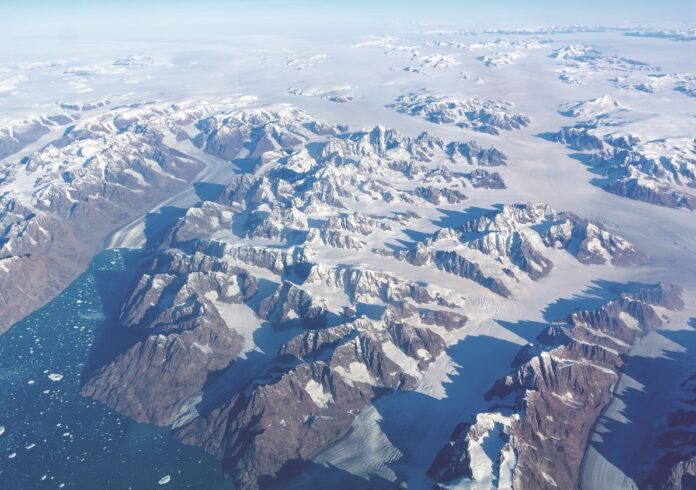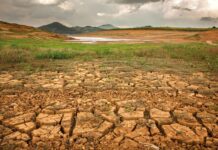By Erika Yarrow-Soden
The World Meteorological Organization (WMO) report The Global Climate 2011-2020: A Decade of Acceleration punctuated the close of 2023 with the second decadal analysis of the state of the climate, including a study of the intensity of extreme weather events and their socio-economic impacts.
A collaborative work of the WMO, national meteorological and hydrological services, national statistics offices, and specialised agencies of the United Nations, the report follows the first decadal analysis, covering 2001-2010.
To gather global data, WMO Members were requested to complete a survey on countrywide temperature anomalies, covering national absolute records for daily maximum temperature, daily minimum temperature, and 24-hour total precipitation. The report notes that almost every reporting country had decadal mean temperatures for the 2011-2020 period that were above the 1981-2010 average. Only three of 99 reporting countries were below the 1981-2010 average.
Breadth of data
The value of this report is the clarity that its scope offers. By gathering and analysing extensive data over a substantive period it provides essential information for scientists and policymakers, allowing the impacts of a changing climate to be observed, considered and – critically – responded to with policies based on evidence-based science.
Tracking trends
The findings show that the rate of climate change surged dramatically between 2011-2020. The report confirms that this was the warmest decade on record for both land and ocean, and that since the 1990s successive decades have been warmer.
The continued rise in concentrations of greenhouse gases (GHG) has fuelled record land and ocean temperatures and a dramatic acceleration in ice melt and sea level rise, leading the authors of the report to call for much more ambitious action to try to limit global temperature rise to no more than 1.5°C above the pre-industrial era.
The report charts the continued increase of atmospheric concentrations of the three major GHGs over the past decade and warns that to stabilise the climate and prevent further warming emissions must be greatly reduced.
Rates of ocean warming and acidification are increasing and marine heatwaves are becoming more frequent and intense, with the report stating that in any given year between 2011 and 2020 approximately 60% of the surface of the ocean experienced a heatwave.
Around 90% of the accumulated heat in the Earth system is stored in the ocean, which is measured through Ocean Heat Content (OHC). With the deployment of the Argo network of autonomous profiling floats, which achieved near global coverage in 2006, it is now possible to routinely measure OHC changes down to a depth of 2000 m. All data sets agree that ocean warming rates show a particularly strong increase in the past two decades.
“As a consequence of climate change, global mean sea level rise is accelerating, largely because of ocean warming and the loss of land ice mass.”
As a consequence of climate change, global mean sea level rise is accelerating, largely because of ocean warming and the loss of land ice mass. The report finds that from 2011 to 2020, sea level rose at an annual rate of 4.5 mm/yr, and glaciers that were measured around the world thinned by approximately 1m per year on average between 2011 and 2020. Greenland and Antarctica lost 38% more ice between 2011 and 2020 than during the 2001-2010 period. The significance to those working to tackle the global water crisis is that the Greenland and Antarctic ice sheets are the largest freshwater reservoirs on Earth, storing a volume of 29.5 million km³ of frozen water. In addition, the Arctic sea ice extent continues a multi-decade decline with the seasonal mean minimum 30% below average.
Precipitation
The report highlights large regional variations in precipitation with some regions having an abnormally wet decade and others where it was abnormally dry during the same period. Long-term drought was predominant in many subtropical regions of the world, resulting in decadal average rainfall more than 10% below that of the 1951-2000 reference period. These regions include the south-western United States, the western Mediterranean, eastern Australia south of the tropics, southern Africa, and central Chile.
In contrast, the decade shows extreme wet conditions across most of Asia. The year 2020 was exceptionally wet in parts of China, particularly over the Yangtze catchment, which had its wettest year of the post-1961 period, contributing to substantial flooding.
Large parts of Australia experienced severe drought from 2017 to 2019, when the three-year rainfall in many parts of the eastern interior was the lowest on record.
Disaster management
An important positive trend is that the number of casualties from extreme weather and climate events has gone down substantially over time. A major contributor to this decrease has been improved early warning systems, driven by improvements in forecasting, coupled with improved disaster management. The 2011-2020 decade was the first since 1950 when there was not a single short-term event with 10,000 deaths or more. However, economic losses from extreme weather and climate events have continued to increase.
Socio-economic impacts
The report finds that extreme weather events have had devastating impacts over the decade, particularly on food security, national development, and the Sustainable Development Goals (SDGs).
In addition, the reports states that: “Virtually every attribution study carried out on an extreme heat event in the decade 2011-2020 found that the likelihood of the event increased significantly because of anthropogenic climate change [with] heatwaves responsible for the highest number of human casualties, while tropical cyclones caused the most economic damage.” It goes on to call for synergistic action on the SDGs and the targets of the Paris Agreement, “whereby advancements in one can lead to improvements in the other”.
More information
See: https://wmo.int/publication-series/global-climate-2011-2020-decade-of-acceleration








